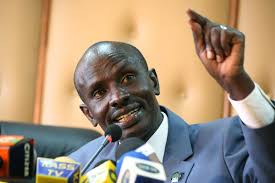TSC: Update on the TSC-KNUT’s Naivasha consultative meeting-2018
The Naivasha retreat between the Kenya Natinal Union of Teachers, KNUT, and the Teachers Service Commission hits a snag as both parties hold on to… Read More »TSC: Update on the TSC-KNUT’s Naivasha consultative meeting-2018
